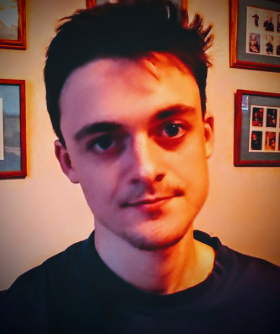What Makes an Effective Cinematic Piece?
Good cinema seems to be increasingly harder to come by these days, and though it may be a distorted view of survivorship bias from the good movies we remember and the bad ones we forget, I believe some directors have truly not forgotten the elements and techniques that make genuine good cinema. First of all on the topic of bias, I am extremely biased towards Denis Villeneuve’s latest masterpiece, Blade Runner 2049, and I consider myself extremely biased for all the right reasons. I’d like to establish that this movie is my favorite movie ever made, because of the stunning cinematography, the emotional, suspenseful story telling, and the genius behind Villeneuve’s development of “K”, played by Ryan Gosling. Blade Runner 2049 is a slow burner, and a slow burner in all the right ways, with an electrifying story that sucks you into K’s character, questioning the reality of the “man”, defined by what little we know about him. I really can praise this film for days, but I should get into why I consider this movie a masterpiece of cinema, and in much farther depth than the concepts previously introduced. Most of all I need viewers to consider why Blade Runner 2049 is up on par with greats like “No Country For Old Men”, “2001: A Space Odyssey”, “The Hateful Eight” (etc.), and why it is an extremely effective piece of cinema.
Cinematography first of all is one of the most important parts of a good film, and “Blade Runner 2049” was no stranger to it, obviously through it’s attainment of an oscar for that category itself. Roger Deakins managed to create a living, breathing, believable world, from the bleak Protein Farms, to the cramped Streets of LA, to the Fallout laden streets of Las Vegas. One still shot of this beautiful film, like the picture seen above, is enough to enthrall an audience, really pulling them into the cinematic world. Stunning visuals, wide shots, long takes, they’re all common in masterpiece films, and many a shot in “Blade Runner 2049” takes viewer’s back to the late, and great, Kubrick’s “2001: A Space Odyssey”, a movie which is famed for revolutionizing cinematography in a time where that level of film was rarely, if ever, seen on the big screen.
Cinematography rarely makes a movie alone though (even if it is top priority for myself in film), and just like the unique, believable characters developed in Tarantino’s “The Hateful Eight”, “Blade Runner 2049” manages to pull off its character development and writing so well that you feel as if an AI named Joi is human herself, even just as a computer program. We feel the intense feelings shown through K’s increased emotional instability as the film progresses, and we pray for a happy ending for him, a character who just wasn’t built to have one. Character development is a tough thing to do, and a lot of movies around now either take a cliched “I’ve seen this character a thousand times in a thousand other movies” approach or try something unique that just doesn’t brush the right strings. This note is where Villeneuve show’s his genius, making every character play an essential role, truly emotional where many of the characters themselves should be void of emotions as “replicants”, and most importantly, believable; because if a character isn’t believable, then audiences will never be able to relate to them on the emotional level required for a great film.
I really do feel like this film perfectly outlines what makes good cinema, and even with sub par box office results, I believe “Blade Runner 2049” will long be studied for its contributions to the art of cinema. From cinematography, to emotional storytelling, to its avoidance of typical cliches while still developing extremely relatable and believable characters, “Blade Runner 2049” truly sticks out as a masterpiece of good cinema.

